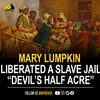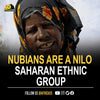Brazil has for years presented itself as a “racial democracy” – a land of harmonious racial relations and free of racism. This image has many times been questioned, while the murder in April 2018 of social justice campaigner Marielle Franco shed new light on the violence many of the country’s black women face. And today, a particular form of racism is increasingly on display online.
In Brazil as around the world, Facebook, Twitter and the like have become a sort of modern-day pillory for distilling varied forms of racism, bigotry and misogyny – and Brazil’s digital public sphere is seeing a distinctive, deep-seated, colonial-like racism unleashed against upwardly mobile black women.
The posts concerned bear the hallmarks of “whitening” ideology – the belief that whiteness represents the only legitimate form of beauty, the ultimate and unquestionable symbol of modernity and progress, whereas blackness embodies exactly the opposite. The racist posts that proliferate on social media are part of an attempt to undermine black women’s social advancement and delegitimize their demands for greater racial equality, putting them back into their “natural” position of inferiority and subservience.
According to a study by the organization Safernet Brasil, in 2017 there were 63,698 reported cases of hate speech on the internet in Brazil, and a third of them comprised racist discourses against black people. In a recent study of my own, I found that 81% of victims of racist discourse on Facebook in Brazil were middle-class black women aged 20-35.
Within the dozens of cases that have reached the headlines, it is worrisome to identify colonial-like expressions: “Where did you buy this slave? Can you sell her to me?”. “Say hi to your cellmates.” “Your place is not travelling across Europe but rather in the fields harvesting cotton.” “Wow, I had no idea that a black could become medical doctor. Who’d fancy taking the chances of a consultation?”. “A N *****. Wait a minute; let me get my whip.”
Shielded by anonymity
There’s plenty here that should have Brazilians deeply worried. For a start, it’s possible that this digital technology and the discourse it hosts are in fact helping reshape contemporary racial relations in Brazil, as bigoted racial stereotypes are constructed, enacted and reinforced in the realm of social media.
More than that, the proponents of racist ideologies disregard any personal distance that might exist between themselves and the victims of their offences. I found that in two-thirds of the cases I studied, those posting the abuse had no previous relationship with their targets either online or offline. The corollary is that anyone who fits the profile is potentially a target.
In Brazil, most racist discourse is conveyed through derogatory humor, often a socially acceptable form of communication. To many people, this provides the convenient excuse that these sorts of caustically racist posts are for “entertainment”. Examples I came across on Facebook include: “Why was a pregnant black woman expecting triplets arrested? She was charged with gang formation”, and “What shines most in a black? The handcuffs, when he’s not holding a knife to rob the bank”.
Finally, these people often believe that online anonymity “shields” them from being held accountable for their attitudes. Nevertheless, the moment that their racist posts reach the headlines of news articles, they do one of four things: delete the post, switch their profile from public to private, delete their account, or claim that the post was “just” a joke.






